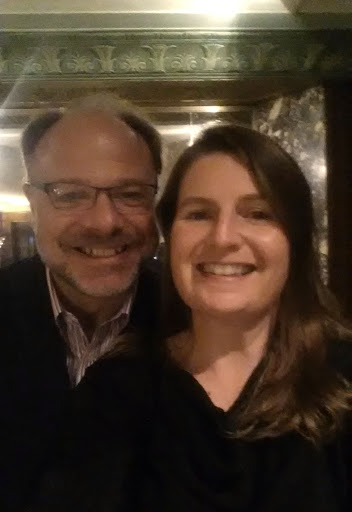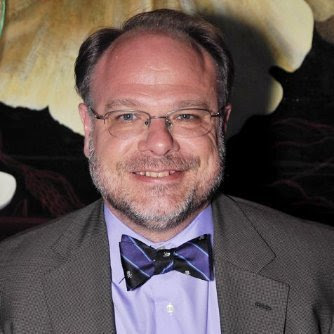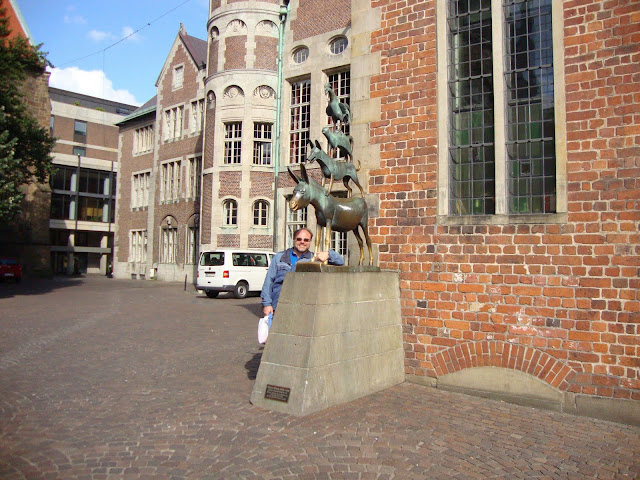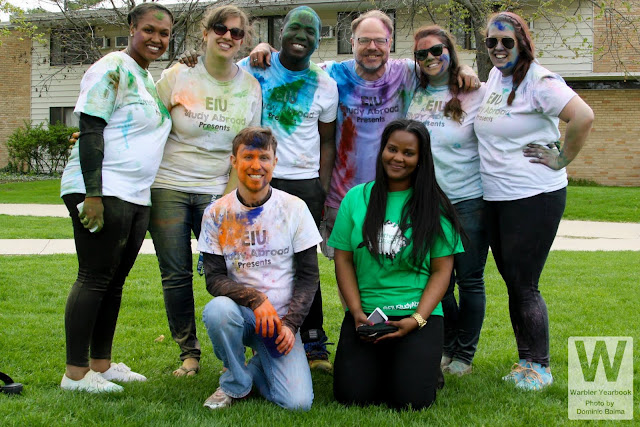With over 20 years of experience in the field of International Education, Kurt Olausen is currently serving as Director of Study Abroad at Eastern Illinois University, in Charleston, IL. Kurt has worked in the field of Education Abroad since 1994 beginning with a position at James Madison University (Harrisonburg, VA). He served as Assistant Director in the Office of Study Abroad at Duke University (Durham, NC) for 10 years, and, most recently, as Director of International Programs at the University of Cincinnati (Cincinnati, OH) from 2007-2012.
In addition to his work in Education Abroad, Kurt has also taught English language and U.S. Culture to non-native English speakers at both the University of Cincinnati and Berlitz Language Services. This experience includes online teaching, classroom instruction, and one-on-one instruction.
Originally from Providence, RI, Kurt earned his B.A. from Dickinson College (Carlisle, PA) with majors in German and Italian Studies, which included study abroad in Urbino, Italy and at the Universities of Mannheim and Bremen in, what was at that time, West Germany. After graduating in 1990, Kurt worked in the international business sector for a short time before starting graduate school at the University of Virginia (Charlottesville, VA), where he earned his M.Ed. in Counselor Education, with an emphasis on Student Affairs Practice in Higher Education in 1994. In May 2007 Kurt received his Ed.D. in Higher Education Administration from North Carolina State University (Raleigh, NC), where his dissertation focused on the portrayal of student activism in the campus print media. In his personal life, Kurt is the husband of Carol, father of Jacob, and person of Rigby.

What is your background in International Education?
Well, as with many people in this field, I studied abroad as an undergraduate. I spent a summer in Urbino, Italy, and an academic year in Bremen, Germany (I was working on majors in both Italian Studies and German). It was my first time outside of North America, and I was abroad for 53 weeks. When I started thinking about what I was going to do after college (which was around Thanksgiving of my senior year), I learned about Student Affairs graduate programs and thought "wow, I can get a degree in this and stay in college for the rest of my life?" and it sounded like an idea worth pursuing. Fast forward two years, when I finally started graduate school (the first time) and I thought I would be an international student advisor, and even spent a semester of my practicum experience working in that area. Due to some changes in that office, however, I only stayed for one semester and then found myself in a study abroad office. That was in 1994, and I really haven't ever looked back. In addition, I have done some ESL teaching both with Berlitz, as well as on the university level. So I really feel like I have a decent understanding of the many facets of international education. Over the course of almost 22 years, I have moved up through the ranks and around the country, earning an Ed.D. along the way, and am now in my second Director's position.

What led you to this field?
I think a lot of things. I generally don't admit this in so public a forum, but I was a less-than-ideal study abroad student. Since I studied abroad before the days of readily-accessible email and other easy communication, my professors and advisors were probably spared a lot of annoyance! Looking back now, I can see all of the stages of culture shock, including a breakdown in the resident director's house on Thanksgiving day. Later, it was this experience that led me to the international student advising side of the field; I thought that having been through the ups and downs, I would be in a good position to help students here. Aside from my experience, and my desire to stay in college for the rest of my life, I enjoy the nature of working in education in that it doesn't get routine or boring. There are always new things happening, new lives to impact, new faces to get acquainted with, and, of course, new challenges. Like many undergraduates, I went through a phase of wanting to change the world, and now I think I am doing that, through my students.
How do you feel that universities can best promote international education?
By making it part of the overall mission of the institution, along with the individual missions of every unit on campus. Too often anything related to the word "international" (or "global") gets shunted to the international students and education abroad offices (or an overall international department, if there is one; or, possibly, foreign language departments) and does not get infused throughout campus. Our international students and faculty are in many (maybe most or all) academic disciplines. How does their presence internationalize the courses? Some departments offer study abroad programs or international internship opportunities for their majors. What about the other departments, and their majors? Does the career services office have information and expertise in advising international students on working in the US, and US students on working abroad? Are the dining options on campus addressing a range of cuisines and dietary needs based on the campus population? Does campus programming reflect the full range of student backgrounds at the university? There are many ways to offer the world to our campuses to start students thinking about the rest of the world. Once they start thinking about it, then we can really start to send them out into it.

How can international educators - and travelers - promote intercultural and diversity issues?
Just yesterday, in the re-entry course I teach, a student presented on his experience with the Hmong people in Vietnam and China. He, quite correctly in my view, pointed out that he had taken classes that discussed diversity, but that it really isn't something that can be conveyed in a classroom setting. After spending a few weeks in Asia, he now has a greater understanding, and a wider view of what diversity means. Most students, I think, have a much better grasp of these issues post-study abroad, and having them talk to their peers about these issues, along with our "official" presentations and marketing, can help prospective students really see what they're going to experience. I talk a lot about it in various contexts: business students, who will need to work in multicultural/international teams throughout their careers; future teachers, who may have any number of cultures (both American and non-American) in their future classrooms; and hospitality majors, who will be serving the entire world as customers, and likely also working with a team from around the globe. When these students, and international educators, can talk about actual experiences with diversity, it becomes more real. In addition to this, there is also the experience that many of our (white) study abroad students have of going to a location where they are "diverse." For so many of them, this has never happened, and it does very often open their eyes to the experiences of others.
International Education (through Study Abroad, cultural exchange, etc.) can change the world. How can we promote these activities and move forward with intercultural knowledge and cultural diplomacy?
By engaging more students in our programs and activities. That's an easy answer, but not an easy process to implement--we know this. This questions goes back to my comments on how international education needs to be infused throughout our campuses. We need what we do to be normalized, and not just a sidebar that a small number of our students participate in. Beyond campus, we obviously need support--both moral and financial. As a parent, I get very frustrated when I hear students say that their parents won't support them to go abroad, or when the parents themselves will say "no, that's not for him/her." My son already knows that study abroad is the only non-negotiable part of his college education (he can choose the time and location)! Next, there needs to be the support of the community, which of course means government, where the financial support comes from for many students. Our leaders need to acknowledge the importance of this with more than just words, but, as we know, it is education that gets cut in budget processes, which is short-sighted in so many ways. It is my hope that as more students have an education abroad experience that they will carry that forward and that this will change for the better over time--again, this is my small part in changing the world.

What is up next for you?
More teaching, I hope. Twenty years ago it wasn't something I ever really aspired to, or thought I would be good at. Now, it has become one of the more fun aspects of my job, and my students seem to find the class useful (at least that's what they tell me). I entered this field because I wanted to work with students, but lost much of that day-to-day contact as I advanced in my career. Being part of an international education faculty that raises up the next generation of leaders in the field would be very fulfilling. There's likely a Peace Corps stint in my future as well.
Is there anything else you'd like to share with us?
I do want to say that working in international education has introduced me to some of the best people in the world. Over the years, I have developed fantastic, close relationships with many of my professional peers, and I really can't say enough good things about everyone I interact with in this field. I would mention names, but I know I'd leave someone out and never hear the end of it! You all know who you are.
Find Dr. Olausen online at:
http://abroad.eiu.edu/
https://www.facebook.com/kolausen
https://www.linkedin.com/in/kurto
Click here to see all of our international education profile features, in Profiles in International Education: A Compendium
All photos courtesy and copyright Kurt Olausen
